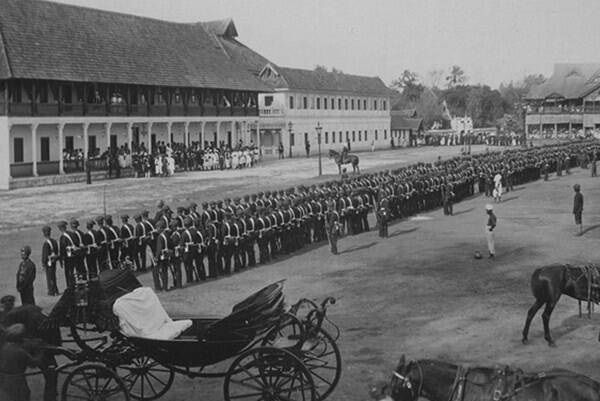KERALA HISTORY

Ancient History of Kerala
So this is something different of a subject, as we are not going to discuss the natural beauty of the place, for a change. If you go by the studies about the place then you are in for a spin, as different historians had varied views on the ancient history of the place. The reason why we have very little or a blurry idea about the history of such a great place is because it’s guided by beliefs, myths and a lot of guesses.
One such legend is the story of ‘Parasurama’ who as per the history books is regarded as the incarnation of ‘Lord Vishnu’. Kerala is the leftover of his heroics is what the relics suggests, however, Geologists are of a different opinion.
It was around 3000 BC trade started kicking in the Malabar coast of Kerala, which till date is a business hub. Popular commodities or items of trade included Ivory, Cotton, Spices and Sandalwood. The areas of Kodungalloor and Cranganore were the major trade centres or the places where all the major trade transactions happened.
Before the advent of Christianity, Kerala was inhabited by Kuravas, Vetas and Pulayas. Jainism and Buddhism also flourished during the same time period, so did the Brahmins, who started rooting in from neighbouring areas. Their community occupied most of the lush lands in the northern region of Kerala. With the increased wealth of Brahmins, a strong differentiation based on caste and class started in Kerala, with Brahmins determining most of the things.
Ancient Period:
Prehistoric Presence: Archaeological findings indicate human habitation in Kerala dating back to the Neolithic era, showcasing a rich prehistoric presence.
Early Trade Routes: Kerala’s strategic location on the southwest coast facilitated trade with Mesopotamia, the Roman Empire, and other ancient civilizations.
Medieval Period:
Chera Dynasty: The Chera dynasty, one of the earliest recorded ruling powers, flourished in Kerala from the 3rd century BCE to the 12th century CE. They were known for their strong maritime trade.
Religious Diversity: Kerala became a melting pot of religions during this period, with the spread of Christianity, Islam, and the coexistence of Hinduism.
Colonial Era:
Portuguese Influence: In the 15th century, Vasco da Gama’s arrival marked the beginning of European influence. The Portuguese established trade centers and forts, leaving a lasting impact on Kerala’s culture.
Dutch and British Rule: The Dutch and British followed suit, engaging in intense competition for control over Kerala. The Dutch East India Company and the British East India Company played significant roles in shaping the region’s destiny.
Independence and Post-Independence:
Freedom Struggle: Kerala played a crucial role in India’s struggle for independence, with leaders like K. Kelappan and A.K. Gopalan emerging as prominent figures.
Formation of the State: In 1956, Kerala was formed by merging the Malayalam-speaking regions, aligning with linguistic boundaries during the reorganization of Indian states.
Cultural Heritage:
Art and Architecture: Kerala boasts distinctive architectural styles seen in temples, churches, and mosques. Traditional dance forms like Kathakali and Mohiniyattam, along with classical music, contribute to the state’s cultural richness.
Ayurveda: The ancient system of Ayurveda thrived in Kerala, with traditional practitioners preserving and passing down medicinal knowledge through generations.
Modern Development:
Social Reforms: Kerala witnessed significant social reforms in the 19th and 20th centuries, addressing issues such as caste discrimination, education, and women’s rights.
Human Development Index (HDI): In contemporary times, Kerala stands out for its high HDI, robust healthcare system, and impressive literacy rates.
Tourism and Natural Beauty:
Backwaters and Beaches: Kerala’s natural beauty, including backwaters, pristine beaches, and lush landscapes, attracts tourists from around the globe.
Eco-Tourism Initiatives: The state emphasizes sustainable and eco-friendly tourism, preserving its natural resources.
Kerala’s history is a tapestry woven with the threads of ancient trade, diverse cultures, and the imprints of colonial powers. From its early roots to modern achievements, the state continues to be a captivating blend of tradition, progress, and natural splendor.